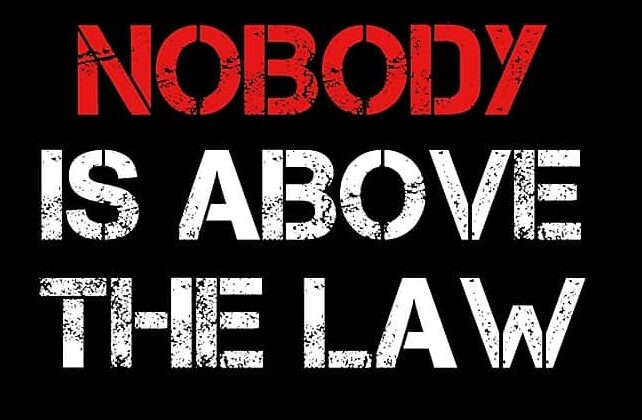Those who hold power are not above the law and should face consequences if they abuse their power.
Javaid Trali
Recall Lord Acton’s seminal words “power tends to corrupt and absolute power corrupts absolutely”.
And also recall what happened on May 12, when ADCBaramulla wielded a stick (which he later claimed was just a corn stalk) to enforce lockdown. The officer kicked, punched and abused those who dared to move out of their homes to attend to some emergency.
The video of the incident went viral on social media and when people saw the officer in question, Mohammad Assan Mir, thrashing an elderly, middle-aged and young women in north Kashmir’s Baramulla town, and shoving and kicking a not-so-young man and a hand-cart puller amidst the constant stream of rough expletives and coarse invectives, they couldn’t brush it aside as a non-incident. Outraging as the action was, it attracted a lot of flak, with netizens demanding immediate punitive action against the “erring” officer. While everybody was fuming at the top officer for going berserk, some people called for his sacking, others wondered “if he has a mother, wife or daughter”.
Following the massive public outrage over the incident, the Divisional Commissioner Kashmir sought a detailed report about the incident from Deputy Commissioner Baramulla, who assured that the issue shall be thoroughly enquired and followed by necessary action. Now we are told that the officer has been placed under suspension.
Now, this is not a one-up incident, an aberration. Though it has always been like this, but of late the attitudinal, behavioral and even administrative shortcomings (including the legality of their actions) of some senior officials have been coming into the public domain with increased incidence.
Past winter when Gulmarg was running house-full with tourists and visitors, a senior official from the district administration Baramulla (again some ADC – wonder if it was again the same official) came upwith an order (farmaan) asking the hoteliers at the skiing resort to cancel all pre-bookings of tourists so as to make rooms available for the people who may come in for the national-level winter sporting events under the Khelo India initiative.
How could have the hoteliers cancelled the bookings of their guests, who had planned their holidays and stay at the resort months back and even booked air tickets and made other arrangements for the same well in advance? Would such a move have been ethical? Legally tenable? What about those whose plans of holidaying in Kashmir would have scuttled? What would they have thought about Kashmir and our hospitality culture, and how would have such a decision reflected on the overall Kashmir tourism?
Obviously, the official had not bothered to make all these calculations and anticipated the fallouts. After all, the bureaucracy here has been given to believe that it could do whatever its constituents want to, and they can get away with anything and everything.
So even when the nonsensical decision about cancellation of bookings at Gulmarg was disowned by the senior officials, and later rescinded too, the official who had come up with the order faced no consequences whatsoever. Not many people would remember it by now.
At Gulmarg only, and again in the past winter, like on previous occasions, the Directorate of Youth Services and Sports organized skiing courses – basic, intermediate and advanced – for the school children. These courses were being conducted free of cost. And that’s how it was supposed to be with a lot of funding – around Rs 1100 crore (as per official admission) – available with the government for promotion of sports in J&K under the new scheme of things.
Then came an official “diktat” with the concerned Secretary and Director General of Sports saying that the children from the private schools should not be enrolled in these skiing courses. Don’t know if a written order was issued in this regard, but the truth is that the children from private schools were not allowed to participate in the skiing courses. Even those who had submitted the admission forms and fulfilled other formalities were informed by the officials that they cannot participate in the courses.
Now it may be asked: how could a senior government functionary, so arbitrarily decide that the children from a particular economic/educational/school background do not have a right to avail government facilities and resources? This arbitrary decision being manifestly discriminatory and unjust was flagged by many people but the concerned authorities couldn’t see, let alone concede, the injustice and illegality of this decision, and instead gave absurd reasons to justify it – including that a couple of private schools conduct their own courses.
Thanks that the matter was not taken to the court – for it would have been immediately struck down for being so discriminatory, and against the fundamentals of justice (manifestly unjust), and equality of all people and their equal claims and rights on the government resources and facilities. But even then higher offices of the political/administrative executive also chose to turn a blind eye to this order.
Over a month back Regional Transport Officer (RTO)in Kashmir came up with a circular asking the people, who own cars bought from outside of J&K, to get their vehicles re-registered here after paying a hefty nine percent registration fees a second time – the first time it’s paid in the state when and where the vehicle got registered initially.
Just recall when the GST was just being implemented, the loudest argument put forth by the political executive was in favour of “one country, one tax”. But here what the people are being told is that even if the tax has been paid once in Delhi or Haryana or Punjab or elsewhere, they will have to shell out another 9 percent once again for registering their vehicles here afresh – and that they will have to do it necessarily. Interestingly, all those arguments about the “one country, one nation, one flag, one constitution…” and the like are nowhere.
So without going into the merits of the case, the men in the Khaki, the police took it upon themselves to harass and haunt the vehicle owners by outrightly “seizing” the vehicles with non-J&K registration plates. They would listen to no reason; no logic for the RTO’s order had given them a reason to cause trouble to people. Hundreds of vehicles were seized in the first couple of days of the drive – forcing almost all non-J&K registered vehicles to disappear from the roads.
See the irony – the RTO’s circular including his legal competence and jurisdictional power for such an order were challenged in the J&K High Court, which rapped the RTO, and his boss – the Secretary Transport department – for coming up with such an order which was beyond their legal pale and mandate. The court also snubbed the police – though not directly but in a very discreet manner saying that it was for the Transport department (and nor the police) to check authenticity and veracity of various documents of motor vehicles.
This should have stopped the police from harassing the common people, but it has not. The cops still continue to concoct wild allegations and justifications to threaten the people with the seizure of vehicles – most of the time to make them shell out money, and also because they are not sensitized to behaving with the people in a decent and dignified manner.
In April this year, authorities in the Bandipora district had to withdraw within hours a “controversial” order making it mandatory for persons above 45 to get themselves vaccinated against COVID-19 to collect their government ration.
“Please remember that without producing Covid-19 vaccination certificate, the ration will not be issued in any case,” the order had said.
Granted, the order in violation of human rights was revoked very quickly, but it wasn’t enough to end the systematic abuse of government power.
One can go on and on counting a long list of such unsound decisions indicative of the complete lack of sensitivity and administrative acumen among the officials. Seemingly, the officials who are running the affairs of this place are programmed to behave like “Mohammad bin Tughlaq”, who as long as he lived, believed that he had all the wisdom, even though history now remembers him as the “foolish king”.
Something very vital is terribly amiss between and among the rulers and the ruled here. What’s that? It’s something that both sides will have to look for and find out. The road to peace and calm, progress and prosperity, welfare and development has reached a dead-end for want of that vital link of rapport and trust, understanding and empathy between the government and the people.
The views and opinions expressed in this article are those of the author(s) and do not necessarily reflect the official policy or position of JKPI






Leave a Reply
You must belogged in to post a comment.